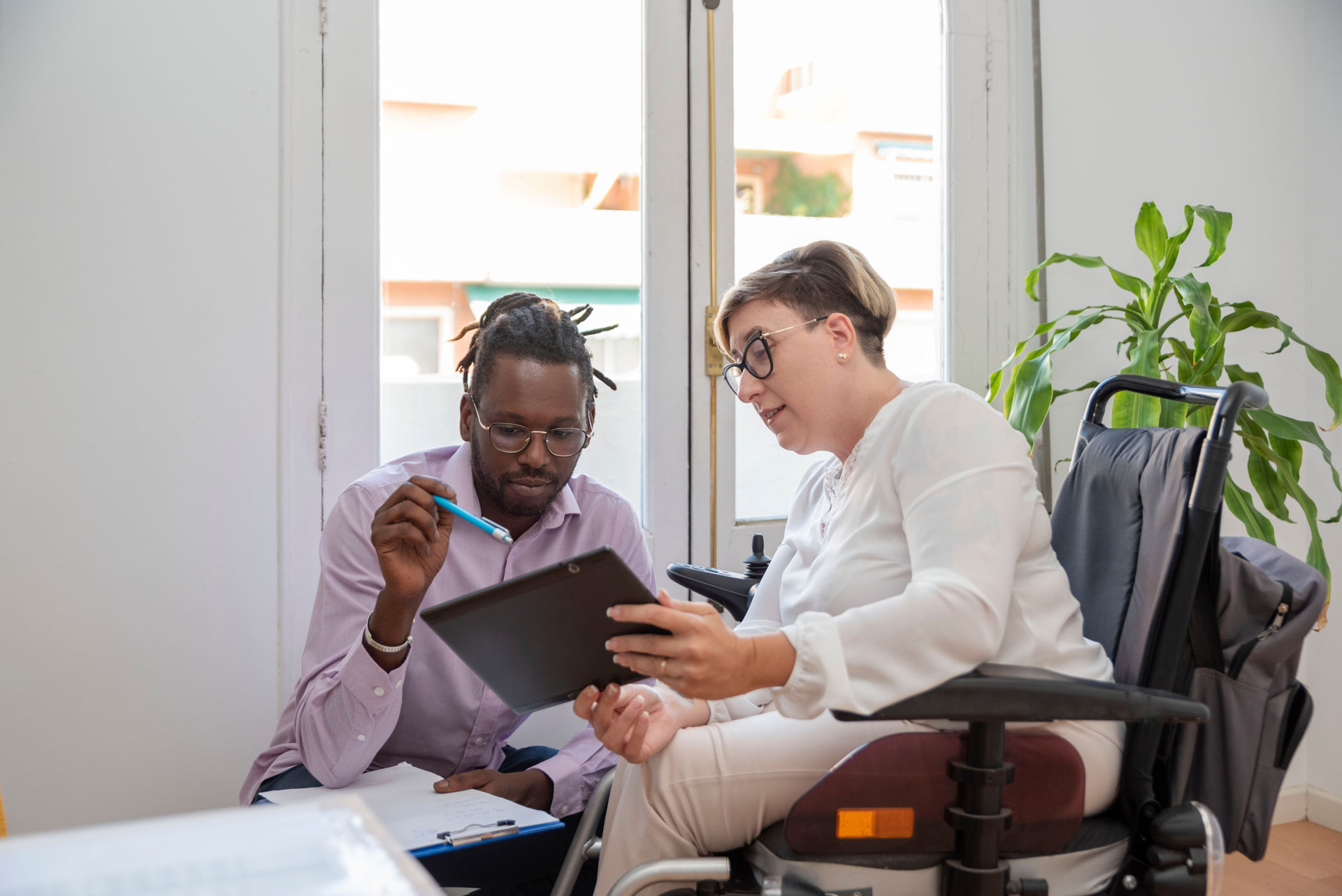Understanding Dignity of Risk in the NDIS

“Dignity of risk” is a phrase often heard in the NDIS sector, but what does it really mean? At its core, dignity of risk is about recognising that every person, regardless of ability or disability, has the right to make their own choices, even when those choices involve risk. It acknowledges that while a decision may not be the one we, as providers or family members, would prefer, it belongs to the individual. People with disability, like all of us, make decisions based on their values, experiences, and personal wishes and desires. Respecting those decisions is essential to their dignity and autonomy.
What Does Dignity of Risk Look Like?
Dignity of risk comes into play across many aspects of life, including but not exclusive to sexuality, gender identity, and sexual expression. Even if an individual is not their own formal or informal decision-maker, they are still entitled to exercise dignity of risk where appropriate. Note that there are some limits to Dignity of Risk that may include legal implications or barriers, so it is important for providers and support staff to understand the scope of which each client can exercise this.
This means providers must:
- Offer genuine choices and explain them clearly.
- Support participants to weigh up risks and benefits of different options.
- Respect autonomy, even when we may personally disagree.
- Balance rights with safety, considering legal requirements and informed consent.
- Navigate and understand legal and ethical boundaries
For providers, dignity of risk also means ensuring choices are exercised safely and within the law. For example, if a participant expresses an interest in engaging with sex work, providers must consider the legalities. In Queensland, for instance, sex work is legal. In other states and countries, laws may differ. Understanding these differences is essential to protect both the participant and the provider organisation.
Providers also need to be mindful of their obligations to the NDIS Commission. Supporting dignity of risk must never cross into facilitating illegal activities or compromise the safety of staff. Even when the individual wishes to engage with a practice that may not be legal, we as providers must understand that is it not our job to police such matters.
Meet Katie. She is supported by an independent support worker, Alex, who is new to working alongside her. Katie is wishing to engage in sex work to supplement her income but would prefer to engage in this from her home address. Alex works with Katie to understand the safety risks of her decision as Katie lives on her own with limited security. After two weeks of discussing the options, Katie decides that it may by best to conduct sex work through a licenced premise (brothel). Although Alex worries about Katie engaging in this type of employment, she is aware that this is a decision that Katie is making on her own whilst having explored the risks of the activity she is going to undertake. Throughout her brief period of employment in the sex industry, Alex continues to check in with Katie on how she is going and what strategies she is putting in place to maintain her safety. Alex does not bring her personal views into these discussions and seeks professional supervision when she feels she requires further guidance and support.
Informed Consent Matters
A cornerstone of dignity of risk is informed consent. This means ensuring the person understands:
- What the activity involves.
- Possible risks and benefits.
- The implications for their health, safety, and wellbeing.
Some participants may be particularly vulnerable or may not fully understand the choices before them. Providers should approach these conversations with patience, education, and a focus on empowerment, while always checking capacity to consent. If in doubt, the participant may have clinical support that can assist in unpacking the person’s capacity to provide informed consent- as direct support providers, we cannot make this determination!
Balancing Professional and Personal Beliefs
It’s natural for providers and staff to bring their own cultural or personal views to the table. However, it’s crucial that these beliefs don’t interfere with a participant’s right to make their own decisions. Supporting dignity of risk does not mean endorsing every choice, but it does mean respecting the individual’s autonomy.
Why Dignity of Risk Matters
At its heart, dignity of risk is about more than decision-making. It’s about:
- Promoting autonomy: allowing people with disability to live their lives in ways that feel right to them.
- Building confidence and self-esteem: knowing they are trusted to make their own choices.
- Upholding human rights: reinforcing that people with disability have the same rights to risk and reward as anyone else.
For providers, embracing dignity of risk is part of creating a respectful, person-centred approach that honours participants as individuals first.
Supporting dignity of risk is not always straightforward. It requires balancing legal responsibilities, professional obligations, and personal beliefs with participants’ rights and choices. Yet, when done well, it empowers people with disability to live fuller, more authentic lives.
Learn in a space where your questions are welcome
Join live sessions or watch on demand — all created by professionals who understand the real-world challenges of exploring sexuality, identity and connection.
- Sexuality & identity
- Consent & communication
- Relationships & intimacy
- Confidence & self expression
- Disability & sexual wellness
- Support & education for carers



